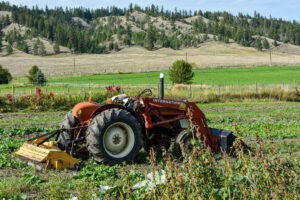1.0 Business Planning
Farm Business Planning Workbook
The first step in an orderly planning process is a self assessment of farm business management practices. This Farm Business Planning Workbook For The Beginning Farmer is a good place to start; it includes the following sections:
- Business Strategy
- Marketing Strategy
- Production Economics
- Human Resources
- Financial Management
- Social Responsibility
- Succession Planning
- Business Structure
- Risk Assessment
Activity: Self Assessment
CFDC of CIFN
Community Futures Development Corporation of Central Interior First Nations (CFDC of CIFN) promotes and provides community economic development support services to Indigenous people within the Central Interior of British Columbia. This Business Plan Workbook is a guide to assist you in developing and writing your own business plan. There are more business resources on the website.
Farm Business Planning Resources
Cultural Elements
If you identify as Indigenous, you can incorporate cultural aspects into your farm. Value-added experiences at your farm could be cultural elements; Paula Cranmer-Underhill (Spapium Farm) does cedar weaving for example and coordinates with Indigenous Tourism BC.
Organic Certification
If you are interested in organic certification, you can find information from the North Okanagan Organic Association, who certifies many farms in this area, or more general information from Organic BC.
Emergency Preparedness
With changing climate conditions and threats of wildfires and flooding, CFDC of CIFN has an Agriculture Emergency Preparedness Workbook that will help you think through how to protect your property in the event of an emergency.
Connecting with Organizations and Universities
- Organizations to reach out to:
- University programs:
Provincial Support
- BC Indigenous Agriculture Development Program – to assist with business planning and feasibility analysis and other programs offered by the BC Ministry of Agriculture
- Ministry of Agriculture, Indigenous and Entrepreneur Services
- AgriServices, Province of BC
- Indigenous Tourism BC
- VanCity bank provides small farm loans

